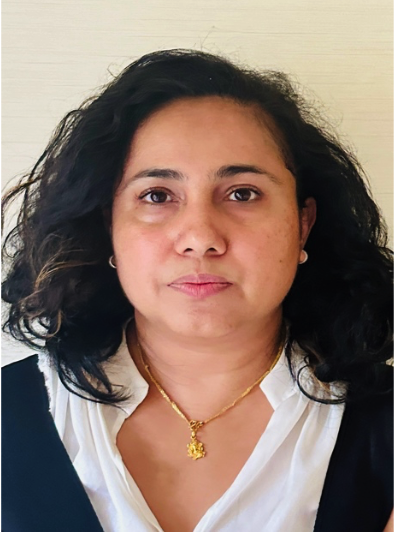Though Nepali civil service has the reputation of possessing the best minds, it often fails to gain appreciation for best service delivery. There may be many reasons for this. But the truth is civil service in a demoralized and divided state cannot function to provide the best services. In what follows, I want to cite some of the demoralizing and dividing elements of Nepali civil service.
There are two gateways to promotion in civil service: Fast track and regular path. Ideally, any option must give a civil servant a chance to become eligible for promotion from third class to special class within the total service period. This should be ensured by the provision of the concerned law. But as per existing provision and practice, at least one promotion by fast track is necessary for a third class entrant to be entitled to special class in the total service life. The reason for this is time factor. To earn full marks of seniority, it requires minimum 12 years of service period. In the immediate past it was 14 years and prior to that it was only 10 years. Civil servants believed that in 10 years term their regular promotion would open up avenue for special class. Such unstable provision is a barrier for a large number of career seekers in civil service.
Similarly, there is no incentive to serve in remote area for promotion as full marks (16) is attainable within 12 years by serving 11 years in the capital or D area and just one more year in remote places or C area. With low motivation for those posted in remote area, the civil servants feel demoralized. There is another element on promotion that encourages civil servants to seek posting in Kathmandu: Academic qualification. The existing provision offers high scores to the entrants based on the “division” of academic qualification. But there is no relation between degree acquired before the time of entry and performance based promotion. By simply counting on “division” the provision belies two impediments: One is reluctant to serve in remote area and s/he becomes more sensitive toward qualification rather than work.
Use of wise judgment in performance appraisal is an equally crucial factor in promotion. It stakes 40 percent of total allocated marks. Personal intimacy works well to influence acquisition of full marks which in turn motivates civil servants to be stationed in the centre. Existing promotion system is thus creating opportunity mainly for capital based personnel. As for posting/transfer, there is no problem in legal provision but in practice. There is a set term for posting on the basis of geographical remoteness which is hardly followed. When the new cabinet is formed and/or reshuffled, the posting and transfer becomes the norm. Nomination for higher study and training within and across the country is another area marred by interferences. The civil servants liaise with political leaders to get their interests met. Those without political affiliation feel excluded.
Demoralizing factor is prominent in promotion and posting for special class too. Legally, regional administrator and the secretary in the ministry are in parity but whoever is promoted to special class and posted in Regional Administration Office is reluctant to join the office. With such a low morale of the officer, how can we expect best delivery? There are examples of transfer from the post of Secretary to Regional Administrator and Director General to the post of Regional Director. In terms of rank, both are equal. Secretary of special class and Director General of first class can lead the Ministry and Department respectively and both of them have countrywide influence where as Regional Administrator and Regional Director´s scope of work is limited in the region. Such practices may be legally right but ethically wrong for civil servants.
When it comes to the district level, Chief District Officer (CDO) and Local Development Officer (LDO) are the senior most officers of the district. In terms of role, responsibility and relation both positions are crucial. But in practice junior CDO and senior LDO remain on equal footing. The same thing applies in the case of LDOs and the rest of the officers. In the absence of seniority protocol, coordination becomes ineffective at district level. It is a psychological element but it has great value in maintaining courtesy.
Civil service is also going through dividing factors in its internal and external arena. The current promotion system has cultivated internal divisions. There are many ways to fulfill vacancies such as through open competition, internal competition, performance based experience and performance based time. As a measure of positive discrimination, the vacant posts allocated for open competition are further reserved on the basis of gender, geography, caste, ethnicity and disability. This does not treat winners on equal footing. For example, the time bound promotion winners (24 Gha promotions) are not treated as real promotion holders. There are a large number of civil servants under this category that is deepening the division in civil service.
External dividing factors have also done harms to the civil service. The civil service act permits formation of trade unions. Though it is a democratic practice, the privilege is limited to position holders from lower up to third class level. On the surface, the provision is politically neutral but it has divided the civil servants in different ideological factions. Political parties encourage civil servants to form unions close to them and the unions, in return, seek to advance their affiliation with the political parties. Forming unions is only helping to divide people. As a result, in posting, transfer and nomination, personnel are favored or excluded on the basis of their political loyalties.
If the state of demoralization and division in civil service is so chronic, the question is how to address these ills. Surely, demoralized and divided civil service builds up an image of “best brain-worst delivery.” To avert the situation, I suggest a few measures. Provision of promotion in civil service act should be managed by amending terms and conditions. Promotion system should be made equally friendly for those working in remote areas. Current provision compels every civil servant to procure basic and additional qualification with better division without any regard to basic qualification during entry. Basic qualification at the entry should, therefore, be treated important and additional qualification considered better. If the government is to give equal opportunity to all, qualification criteria for promotion are more a condition of discrimination and deprivation. The time limit to earn full marks of seniority is quite long. It should be cut to 10 years.
Posting, transfer and nomination should be managed by rule based practice. The concerned agency should maintain ethical values and contribute to making the civil service most attractive, competent and resilient with an image of “best brain-best delivery.” Posting in the leading designations such as Secretary, Regional Administrator, Director General, Regional Director, Chief District Officer and Local Development Officer should be executed on the basis of persons’ talent, brilliance, experience and maturity.
The entire civil service is demoralized. No civil officer feels pride in introducing himself /herself as a government officer. S/he prefers to introduce herself/himself quoting the ministry where s/he works. Our society, in general, judges civil servants on the basis of their powers and privileges. Time has come to rescue civil service from all the maladies. In an era of global competition, a man of democratic character with competence to drive forward development must be thought of as an eligible candidate for civil service.
The writer is an Under-Secretary at Ministry of Local Development and can be reached at rameshwupap@gmail.com
Bill bars local units from recruiting civil servants






































